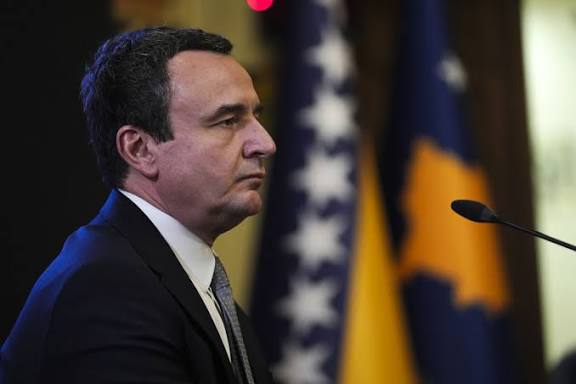Albin Kurti’s bid for third term collapses as Kosovo Parliament votes him down

The Kosovo Assembly failed on Sunday to approve the formation of a new government led by acting Prime Minister Albin Kurti, marking the first time in the country’s parliamentary history that a proposed cabinet has been rejected. Kurti’s proposed “Kurti 3” government received 56 votes in favor, 52 against, and 4 abstentions, falling short of the 61 votes required for confirmation.
Why is this important: The failed vote deepens Kosovo’s political crisis and brings the country closer to snap elections, likely to be held before the end of the year. The result reflects the deep political divisions within the Assembly and the growing isolation of Kurti and his Vetëvendosje party following months of strained relations with Western allies.
Context: Speaker Dimal Basha announced that the responsibility for the next steps now falls to President Vjosa Osmani, who is expected to hold new consultations with parliamentary parties to explore whether any candidate can secure a majority. The President’s media adviser, however, said Osmani will seek “guarantees for 61 votes” before granting another mandate.
Opposition leaders have already ruled out supporting any new government under Kurti. Memli Krasniqi, head of the Democratic Party of Kosovo (PDK), said that the country should “go to early elections as soon as possible.” Similarly, Lumir Abdixhiku of the Democratic League of Kosovo (LDK) declared that the failure marked “the end of an eight-month blockade” and called for citizens to decide Kosovo’s next direction at the polls.
Reuters reported that the opposition parties — PDK, LDK, and AAK — refused to join Kurti’s government, criticizing his handling of relations with the EU and the United States, as well as his confrontational approach in northern Kosovo, where tensions with the Serb minority remain high.
Kurti’s isolation grows: Kurti, whose Vetëvendosje won 42% of the vote in the February elections, had claimed he possessed the votes to form a majority, but failed to secure partners. He revealed that no parliamentary party had accepted his invitation to form a coalition, while he himself rejected an LDK proposal for a government of national unity.
The failure leaves Kosovo without a stable executive nearly eight months after elections, heightening uncertainty over its European integration path and relations with its allies. If no party can form a majority, the President is constitutionally required to dissolve parliament and call elections within 40 days.
What’s next: According to estimates by political analysts, possible dates for the next election range between 20 November and 21 December.


